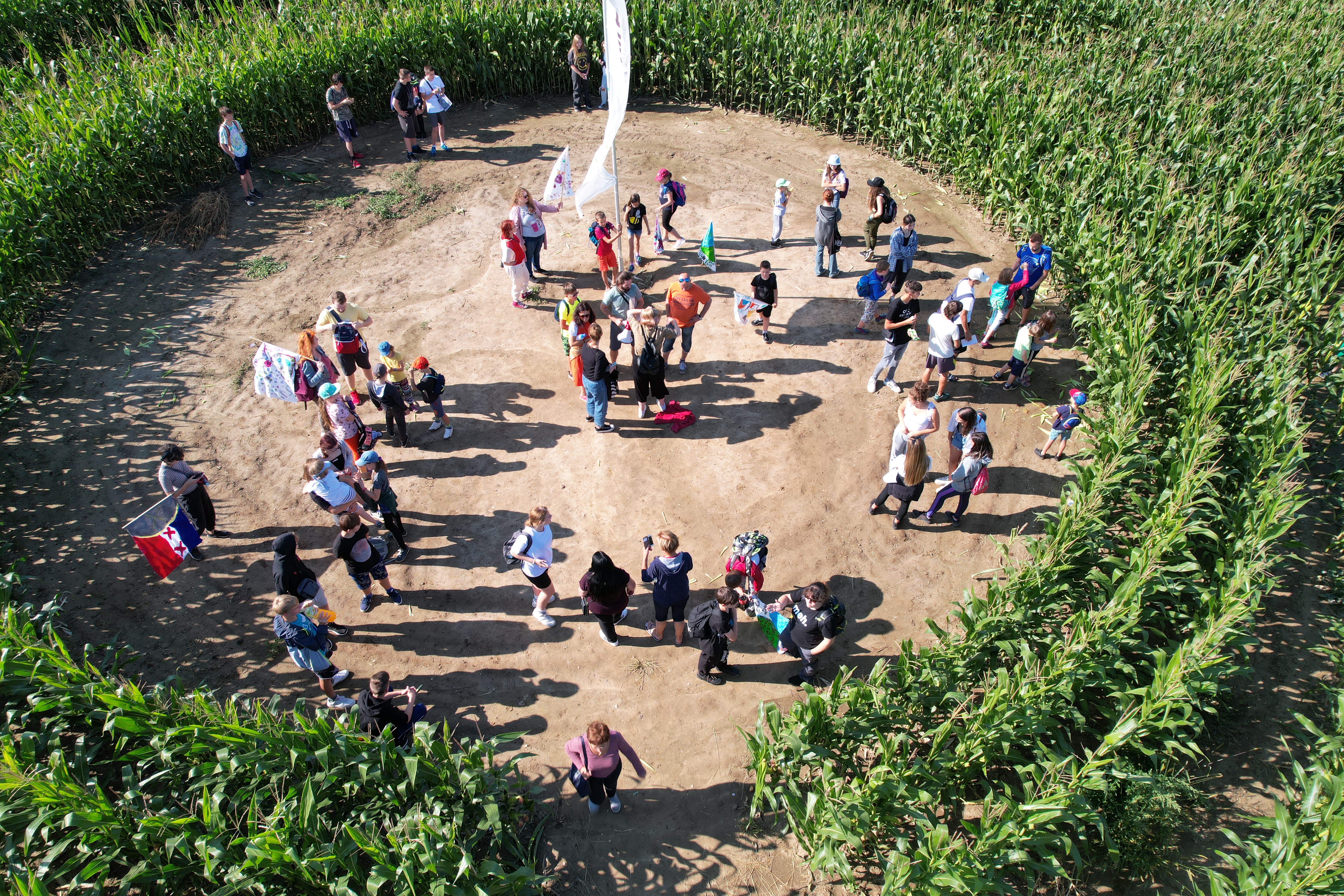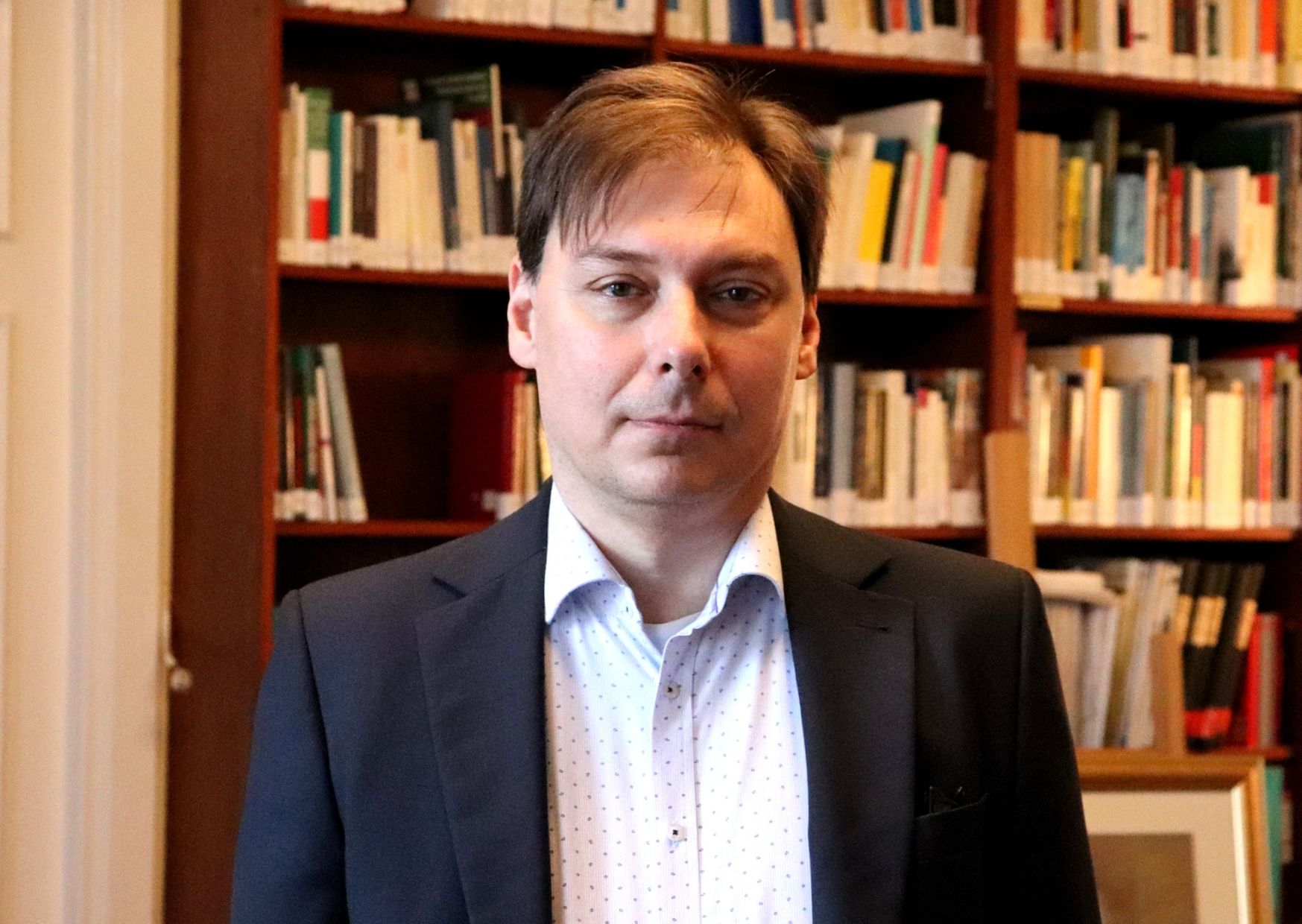 On 3 September 2021, our foundation garden team responsible for the implementation of the ecological garden construction project in Krzyżowa had the great pleasure to visit the Arboretum in Wojsławice. A walk around the garden with Mr. Tomasz Dymny, deputy director for the arboretum, who with great passion and cordial hospitality introduced individual parts of the garden, provided us with a lot of inspiration.
On 3 September 2021, our foundation garden team responsible for the implementation of the ecological garden construction project in Krzyżowa had the great pleasure to visit the Arboretum in Wojsławice. A walk around the garden with Mr. Tomasz Dymny, deputy director for the arboretum, who with great passion and cordial hospitality introduced individual parts of the garden, provided us with a lot of inspiration.
We learned about a number of horticultural solutions used in the arboretum for plant cultivation: we found out how the planting quarters are created, what materials are used, for example, in the construction of edgings, what thickness is the mulch used, how many hectares of garden are there for one gardener and much, much more.
Read more: Visit to Wojsławice - 3.09.2021
 The year 1990 was a turning point in overcoming the communist legacy and shaping democracy in the countries of Central and Eastern Europe. The Krzyżowa Foundation for Mutual Understanding in Europe together with its partners in the project "1990 / Year One", Stiftung Adam von Trott, Imshausen e.V. (Germany) and Post Bellum (Czech Republic) have prepared educational materials for history and social studies teachers and all those interested in Europe's recent history.
The year 1990 was a turning point in overcoming the communist legacy and shaping democracy in the countries of Central and Eastern Europe. The Krzyżowa Foundation for Mutual Understanding in Europe together with its partners in the project "1990 / Year One", Stiftung Adam von Trott, Imshausen e.V. (Germany) and Post Bellum (Czech Republic) have prepared educational materials for history and social studies teachers and all those interested in Europe's recent history.
Three versions of the materials, prepared especially for Polish, German and Czech schools, were created at the same time. They contain lesson and workshop scenarios, as well as a historical essay whose aim is to present the events which took place in Central and Eastern Europe in 1990. Materials prepared for Lithuanian youth are also to be published soon.
Read more: Educational materials: Democratic Transition in Central and Eastern Europe (1989/1990)

A week of intensive, international creative work is behind us, the results of which we were able to see during the final presentation of "The Space for Young Artists" project.
From August 22 to 29, a group of 58 participants aged 6-16 from various countries and social groups, with the support of tutors, translators, coaches, volunteers, and IYMC educators, took part in workshops in ceramics, dance, cooking, circus, stop-motion animation, sculpture, theatre, and inspired by textiles. In this way, the young people could experience informal education, get to know different forms of expressing themselves and their emotions and discover their hidden talents.
This week in Krzyżowa was also an opportunity to learn from each other, make new friends, build international relations, solve problems together and take joint initiatives. For some, it was a jump into deep water. The first independent trip. For others, it was another adventure in Krzyżowa. For both of them, it will remain in their memories for a long time.
Read more: ||REPORT|| The Space for Young Artists - 22-29.08.2021
 "The Pastoral Letter of the Polish Bishops to their German Brothers", which was created in 1965 on the initiative of the Polish episcopate, is considered one of the first steps on the path of Polish-German reconciliation after the Second World War. The content of the document, the author of which was bishop Bolesław Kominek, was certainly consulted with the then primate of Poland, Cardinal Stefan Wyszyński. On the eve of his beatification, Dr. Robert Żurek, managing director of the Krzyżowa Foundation for Mutual Understanding in Europe, recalls the important role Cardinal Wyszyński played in shaping Polish-German relations:
"The Pastoral Letter of the Polish Bishops to their German Brothers", which was created in 1965 on the initiative of the Polish episcopate, is considered one of the first steps on the path of Polish-German reconciliation after the Second World War. The content of the document, the author of which was bishop Bolesław Kominek, was certainly consulted with the then primate of Poland, Cardinal Stefan Wyszyński. On the eve of his beatification, Dr. Robert Żurek, managing director of the Krzyżowa Foundation for Mutual Understanding in Europe, recalls the important role Cardinal Wyszyński played in shaping Polish-German relations:
"The Primate at various times in history was able to firmly oppose certain anti-Polish voices and tendencies that came from West Germany, but on the other hand he understood that reconciliation and good relations with Germany were part of the Polish raison d'état".
Read more: Dr hab. Robert Żurek on the role of Cardinal Stefan Wyszyński in the process of Polish-German...







